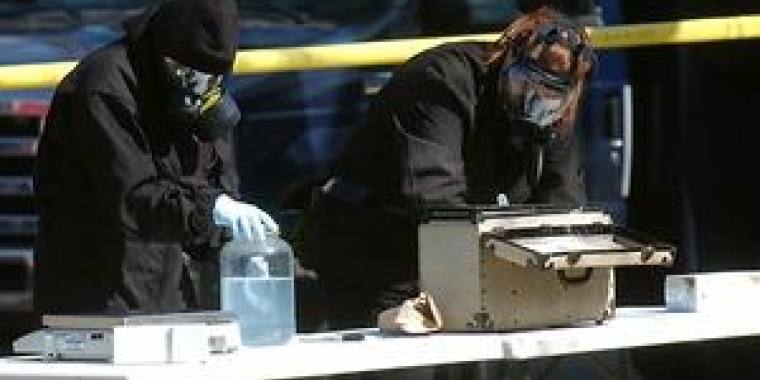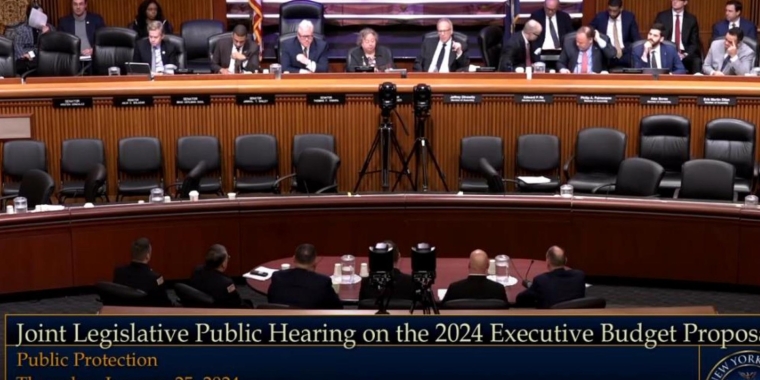
Senate approves O'Mara's legislation targeting meth labs
Thomas F. O'Mara
April 29, 2014
-
ISSUE:
- Controlled Substances

Albany, N.Y., April 29—The state Legislature returned to Albany this week to begin the final weeks of this year’s legislative session and one of the first orders of business for the New York State Senate yesterday was to approve legislation sponsored by Senator Tom O’Mara (R-C, Big Flats) to further outlaw the operation of clandestine methamphetamine labs.
The legislation was approved with strong bipartisan support in the Senate by a vote of 55 to 4. The measure now goes to the state Assembly where action on the legislation has been stalled for the past few years.
If enacted into law, O’Mara’s legislation (S.3639) would increase the criminal penalties for the possession of meth manufacturing material and the unlawful manufacture of meth, implementing a series of increasingly severe felony offenses.
“Meth and heroin are the twin drug plagues facing the Southern Tier and Fingers Lakes regions. Meth labs pose unacceptable risks to our neighborhoods, threaten the safety of police officers and first responders, and burden local systems of health care, criminal justice and social services,” said O’Mara, who also serves as a member of a Senate Task Force on Heroin Addiction that’s currently conducting public hearings and plans to unveil a series of legislative recommendations before the end of the current legislative session. “Our laws need to keep pace with the ultimate goal of putting meth manufacturers out of business in New York State. The only byproducts of meth are addiction, tragedy and violence."
[Read more in today's Elmira Star-Gazette, Ithaca Journal, The Leader (attached below) and The Odessa File: News of Schuyler County]
O’Mara highlighted the increasing frequency of meth-related arrests and other incidents across the Southern Tier and Finger Lakes over the past few years as the impetus for imposing stricter criminal penalties for possessing the material to make or for manufacturing the dangerous and highly addictive drug.
The most recent local meth lab discovery and subsequent arrests were made by State Police in Savona in Steuben County last week.
O’Mara said that he’s also continuing to sponsor legislation that would increase the criminal penalties for the possession and/or sale of meth to bring the penalties more in line with the penalties for possessing and/or selling cocaine and heroin (S.3289). That legislation is currently in the Senate Codes Committee.
“These actions would make it easier to prosecute meth crimes and impose tougher criminal penalties for manufacturing, possessing and selling meth,” said O’Mara. “We also hope tougher anti-meth laws will act as a stronger deterrent among our young people at risk of falling prey to this cycle of addiction and tragedy. We need to keep sending a stronger message that we’re not going to tolerate it.”
Yesterday's Senate-approved legislation would send a stronger message to would-be meth makers, O’Mara said. It includes a provision making it a Class A-1 felony, punishable by a maximum sentence of 20 years in prison, for criminals convicted of operating a meth lab for the second time in five years. That’s currently a Class B felony that carries a maximum prison sentence of nine years. The legislation also establishes the crime of manufacturing meth in the presence of a child under the age of 16 as a Class B felony. The possession of methamphetamine manufacturing material in the first degree would increase from a Class E to a Class D felony, punishable by up to two-and-a-half years in prison.
O’Mara stressed that meth manufacturing involves the use of highly explosive, flammable and toxic chemicals, and meth labs pose a significant public health and safety threat, especially to young children and especially if they’re located in residential neighborhoods. According to the United States Department of Justice, methamphetamine is one of the nation's greatest drug threats. A recent department report noted that the drug is at its highest levels of availability and purity -- and lowest cost -- since 2005. That's attributed to rising Mexican imports, but also because of increased small-scale domestic production.
Share this Article or Press Release
Newsroom
Go to Newsroom


